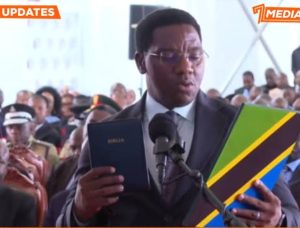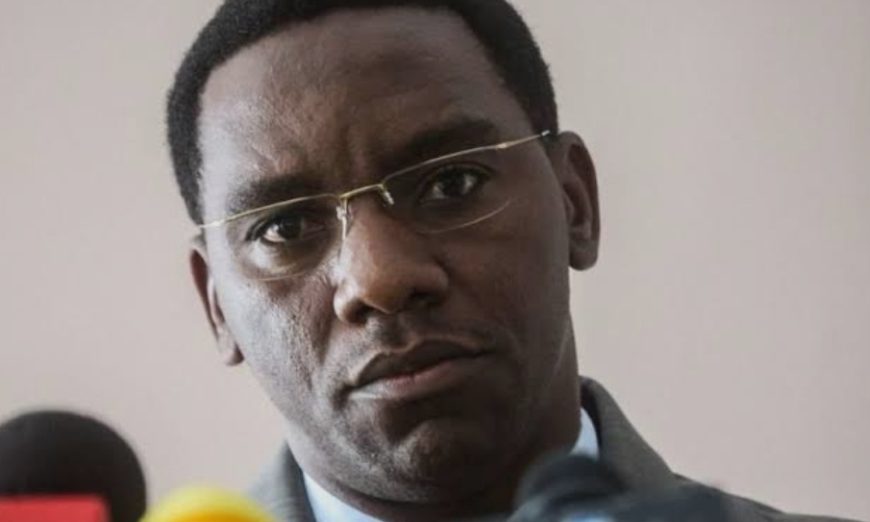Paul Makonda’s elevation to deputy minister tells a story far larger than one man’s political comeback. It represents the culmination of a slow but deliberate reversal of Tanzania’s democratic gains – one that began quietly after John Magufuli’s death in 2021 and has now erupted into full view.
For victims of state intimidation, enforced disappearances, and politically motivated violence, Makonda’s rise does not simply reopen old wounds; it signals that the forces they once fled are again ascendant.
When Magufuli died, Makonda had already been pushed out of the state spotlight. His legacy of unlawful arrests, violent raids, media intimidation, and the notorious anti-LGBTQ crackdown had damaged Tanzania’s reputation and earned him an American travel ban.
Yet instead of distancing her administration from these abuses, President Samia Suluhu Hassan made the fateful decision to rehabilitate him. She first appointed him as the ruling CCM party’s Publicity Secretary – cementing him as the seventh most powerful figure within the party.
Later, she named him Regional Commissioner for Arusha. His most recent ascent came in November 2025, when the president appointed him Deputy Minister for Information, Culture, Arts and Sports.

Makonda’s re-emergence coincided with a disturbing resurgence of the very incidents that defined the darkest years of the Magufuli era: abductions, political disappearances, terrorism-linked assassinations, and arbitrary killings.
What had once been dismissed as the excesses of a bygone regime began once again to appear with alarming frequency – this time under Samia’s watch. Civil society groups quietly documented a spike in politically motivated threats.
Opposition parties reported systematic surveillance. Journalists who had returned from exile after 2021 began leaving again. It became clear that Makonda’s return was not an isolated appointment; it was a signal to the networks that once thrived on fear and brute force that their time had returned.
This climate laid the foundation for the brutality witnessed in the run-up to the 2025 general election and its aftermath. Protesters demanding electoral transparency – many of them young, idealistic, and peaceful – were met with lethal force.
Some reputable international media reported that dozens were killed, hundreds injured, and others disappeared without trace.
Families reportedly searched morgues, hospitals, and police stations in vain, while the government insisted on “isolated incidents.” Yet the pattern was unmistakable: Tanzania had entered a new era of repression, bearing striking resemblance to the Magufuli years but now politically owned by the Samia administration.
For victims of Makonda’s past threats – journalists he harassed, activists he intimidated, community members who suffered raids ordered under his watch – the message has been devastating. Those in exile now face the grim reality that returning home may be impossible for the foreseeable future.
Many fled with little more than their clothes and memories of trauma. They sought asylum in Kenya, Uganda, Rwanda, South Africa, and Western Europe. With Makonda’s elevation, their fears of retribution are no longer speculative; they are grounded in history.
Inside Tanzania, those who once dared to speak out have entered a renewed state of silence. Survivors of his past operations – some beaten, others detained unlawfully – now live with an acute sense of vulnerability. Human rights defenders face heightened surveillance. LGBTQ communities, already traumatized by Makonda’s threats to “hunt” them, once again encounter state-sanctioned hostility. Lawyers and journalists who documented his abuses fear that their work may place them in renewed danger.
Politically, Makonda’s ascension underscores a profound contradiction within the Samia regime. While outwardly projecting moderation and reform, her appointments have entrenched the very figures responsible for past repression. The message to the ruling party is that loyalty is rewarded above legality, morality, or public trust.
The message to the security apparatus is that force remains a valid instrument of governance. And the message to citizens is chilling: accountability has no place in Tanzania’s political vocabulary.
The stakes are enormous. With Makonda now holding ministerial-level influence, the future of human rights in Tanzania faces serious jeopardy. His promotion normalizes impunity. It signals that political ambition trumps justice.
And it raises a critical, haunting question:
“If those with documented histories of abuse are elevated rather than disciplined, what hope remains for the victims who still await recognition, redress, or even an acknowledgment of their suffering?”
Tanzania stands at a defining moment. The nation must decide whether it will confront its past or embrace a future built on fear. Makonda’s rise suggests that the latter path is gaining ground – and that the struggle for human dignity in Tanzania is far from over.










